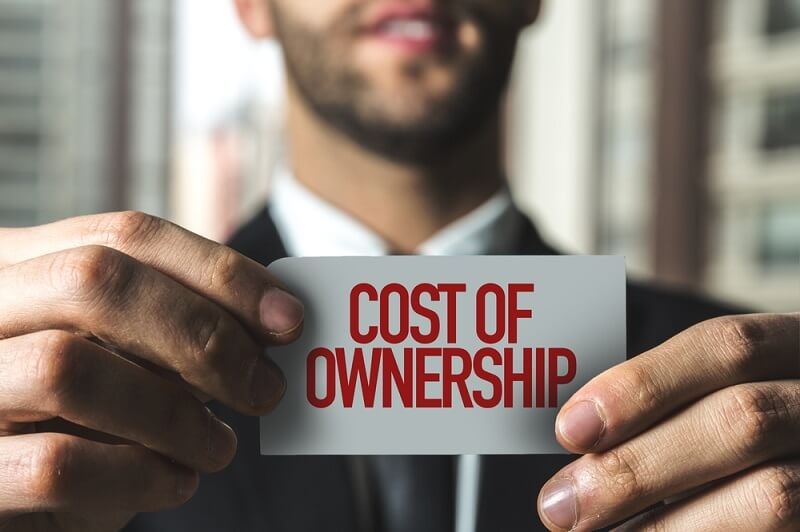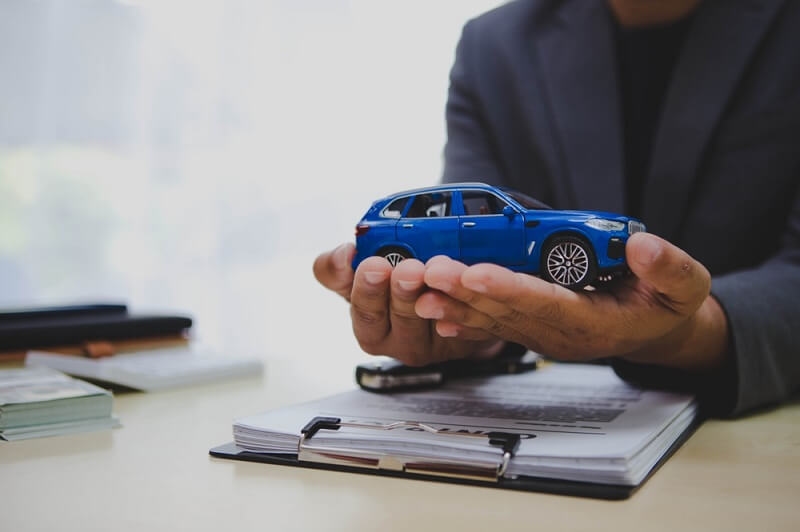Hidden Car Ownership Cost Every Buyer Should Expect

Buying a car can be quite exciting, whether it is your very first or an upgrade after having driven for years. Yet, one mistake is common with most buyers: they focus on the price tag. In reality, the car ownership cost goes way beyond the purchase price or monthly loan payment.
The common list of expenses that are not obvious comprises general maintenance, taxes, insurance expenses, fuel costs, and even extended warranty costs. These costs tend to add up pretty fast. Understanding them in the beginning will help you make informed financial decisions and plan your budget accurately without any surprises.
With each of these hidden costs, we will go into detail so you will know just what to expect as the owner of a vehicle.
Comprehend the Real Cost of Owning a Car
The cost of car ownership includes every dollar spent to buy, operate, and maintain a vehicle over its life. That is far beyond what's on that sticker on the window. For most Americans, these additional costs add up to thousands of dollars every year.
Typical expenses include:
- Routine maintenance and repairs
- Fuel and energy costs
- Registration fees and taxes
- Insurance expense
- Optional add-ons may include the following: extended warranty
- Depreciation and unexpected repairs
While you can easily calculate your car loan payment, the cost of owning a car continues every month you drive it. Budgeting for these expenses makes sure that you really can afford your vehicle, not just to buy it, but to keep it in good shape for years to come.
Maintenance - Keeping Your Car Running Smoothly
Routine maintenance is the most vital and highly underestimated aspect when owning a vehicle. In fact, every car requires regular maintenance to keep it safe and efficient, whether new or not.
- Regular maintenance generally includes oil changes, tire rotation, brake replacement, fluid checks, battery servicing, and all other tune-ups recommended by the manufacturer. Over time, these activities will make your car operate well and prevent expensive repairs.
- Poor maintenance often leads to larger, more serious mechanical problems. A small oil leak or worn-out brake pad now becomes an expensive fix if it is not taken care of. But while maintenance might feel like an inconvenience, it's actually one of the most predictable and controllable parts of your car ownership cost.
Set aside a small amount each month for maintenance, even when new. Just remember, proactive care almost always costs less than major repairs.
Insurance Expense

Car insurance is a necessary cost for motorists. All states require at least some measure of coverage, and even those states with relatively low minimums have a majority of their drivers buying much broader protection to help protect their finances.
Your driving history, location, type of vehicle, and level of coverage all come into play in order to determine the expense of insurance. Generally speaking, the newer or more luxurious the vehicle, the higher the insurance expense; older models with high safety ratings may qualify for discounts.
Cost of Protection
The average annual insurance cost in the US ranges from less than $1,000 for basic coverage to several thousand dollars for full coverage or high-end vehicles. It's a good idea to get a few quotes, adjust the deductibles accordingly, and check if safe driver or bundling discounts are available.
The cost of insurance is not hidden, but many first-time car buyers do not calculate how large a share it may take from the monthly car budget. Factoring it into your overall car ownership cost keeps you financially prepared.
Fuel Cost
However fuel efficient your car may be, the cost of fuel is always part of the equation when it comes to owning a car. Gasoline and energy prices fluctuate often and can be mostly unpredictable at times. Over the period of one year, even a slight uptick in fuel costs could mean hundreds added on to the overall cost of owning a car.
The Ever-Changing Factor
How much you drive, your type of vehicle, and driving conditions will determine your fuel cost. Generally, smaller sedans and hybrids have the smallest fuel costs, while larger trucks and SUVs use much more. Electric vehicles, or EVs, may lower your fuel cost but could raise your electricity bill slightly and introduce other types of expenses, such as charging installation or battery care.
To help control fuel costs, keep in mind eco-friendly driving practices like maintaining steady speeds, keeping tires properly inflated, and avoiding idling whenever unnecessary. Regular maintenance also plays a role: A well-tuned engine uses less fuel.
Knowing your fuel cost helps you make smarter driving decisions and better estimate the total cost of owning a car year after year.
Taxes and Fees
Buying a car is going to include a number of surprise taxes and registration fees tacked onto the bill. Sales taxes alone depend on the state and the price of the vehicle, and have been known to add up to thousands of dollars. Many buyers do not account for these fees until they show up on the dealer's or DMV bill.
Add-Ons People Often Forget
Ongoing taxes include yearly car registration, emission test fees in some states, and property taxes in states that assess vehicles every year. These are considered some of the long-term car ownership costs, which can be very different depending on where you reside.
When you budget for your new set of wheels, research well in advance what taxes and registrations are due in your state, so you won't be surprised at the time of purchase or renewal.
Note that these taxes and administrative fees do not add to the performance of your car but are just some other compulsory costs of owning a car; another reason for considering them in the overall cost of owning a car.
Extended Warranty
It can be either a valuable addition or an unnecessary expense, depending on your situation. The majority of buyers get offered an extended warranty at the time of purchase, promising more coverage beyond the manufacturer's original warranty period.
These plans ensure against costly repairs if your standard warranty has expired. For example, if your transmission or electrical system fails after a few years, an extended warranty could save you thousands in repair costs. Not every owner will benefit equally, however.
Peace of Mind at a Price
Think about the vehicle's reliability record, your driving habits, and how long you keep your vehicle. Some people like to budget a certain amount every month for unexpected repairs rather than pay for an extended warranty in one lump sum.
While it adds to the total cost of owning a car, an extended warranty can give peace of mind for those who want predictable expenses without surprise repair bills.
Depreciating Value
Depreciation is not a bill you directly pay, but it's one of the biggest contributors to overall car ownership cost. The moment you drive your new car off the lot, its value begins to drop - often by 15% to 25% in the first year and as much as 60% over five years.
The Invisible Expense
While the issue of depreciation doesn't affect monthly expenses, it does affect resale value-but that's something you need to consider if you will be selling or trading in your vehicle later. Some models-especially those with good reliability and low maintenance costs-tend to retain more value. It is not easy to minimize the depreciation, but perfect maintenance, regular cleaning, and avoiding accidents will help retain the better value of your car over time.
Small Costs That Build Up Regularly
Besides big categories, there are other little things that add up to the cost of owning a car: parking fees, tolls, detailing, accessories, and the occasional ticket all factor into your annual expenditure.
Even small-seeming costs, like car washes or air fresheners, add up when considered over a period of years. Tracking these little items gives you a better sense of what your real car ownership cost is, and where you may be able to cut back.
Budgeting Tips to Manage Car Ownership Cost
Now that you know what contributes to the car ownership cost, here are a few practical tips to keep it within your budget:
- Early Plan for Maintenance: Set up a savings fund for maintenance and repairs to avoid surprises.
- Shop around for insurance: Check your insurance cost every year for more favorable rates or discounts.
- Drive Smart: Conserving fuel reduces your overall fuel cost and helps the planet.
- Understand State Taxes: More importantly, do your research on taxes and registration fees before buying, especially if you're changing states.
- Extended Warranty Offers: The extended warranty should only be purchased if it fits your driving habits and the type of vehicle.
Track your spending: Use a simple spreadsheet or app log to track ongoing expenses and understand your full cost of car ownership each year.
Conclusion
Owning a car offers freedom, convenience, and independence, but with ownership comes responsibility. When you add in upkeep, taxes, fuel costs, insurance premiums, and options such as extended warranties, you find pretty quickly that the true cost of owning a vehicle is far more than the dealership price for your new car.
By preparing yourself for these hidden expenses, you can make smarter purchasing decisions, stay within your budget, and fully enjoy all of the positives of owning a vehicle without having to worry about money concerns. The best approach to owning a car is considering it a constant investment, rather than a one-time purchase, which is, in reality, quite simple. You will never be behind; instead, you will always be prepared, knowledgeable, and confident every mile of the way if you view car ownership this way.
This content was created by AI

